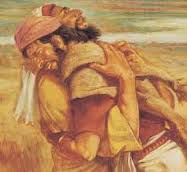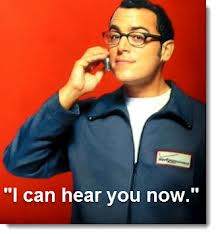In my latest post I shared my words from my ward’s latest fast and testimony meeting. It was intensely personal to me; I sniffled through some of it, something I almost never do despite my good Mormon upbringing. Even so, I posted my testimony because I wanted to give encouragement to those members who, for various reasons, love the Church in spite of the sometimes painfully large, angry-red, pus-filled warts that they see. I wanted to provide support to Mormons who desire to be themselves at church, in a church where being yourself can make you undesirable if your beliefs are not mainstream.
In the past I have avoided sharing some of my concerns about the Church with my TBM friends. If the Church is working well for them I do not want to give them difficulty. If they are deriving strength and hope from our community and its teachings, if they are comforted by the certainty of belonging to the One True Church and are learning to know God and love their neighbors by participating in it, I do not want to rain on their parade.
On the other hand, I rebel against the idea of being chased away from the Church because I can no longer tolerate the cognitive dissonance of pretending to be someone else while I am there. In addition, I know I am not the only one who feels alienated at times. I know gay people, feminists, divorced people, and others, who experience church as something to endure rather than treasure because policies, practices, and teachings leave them out in the cold—a curious, pitiable, or problematic afterthought.
So call me a Woolleyite. This is as much my church as it is anyone else’s. As I told the bishopric counselor who greeted me after sacrament meeting, “This is who I am, so I guess y’all are going to have to deal with it.”
I’m a Mormon feminist who loves and admires Kate Kelly and the Ordain Women movement, who loves my gay friends and marches with Mormons Building Bridges, who thinks Joseph and Brigham were hot messes who had wondrous visions anyway, who thrills to King Benjamin’s soul-building insights and weeps at the Book of Mormon’s racism and sexism. Mormonism is my heritage and my home, where I dream of Zion establishing itself within my heart and within my community. To paraphrase Brother Brigham: This is my place.
Now, on to the response from testimony meeting:
Three people during the meeting seemed to disagree with me in their testimonies. All were people I know well, and all of them were respectful, or even kind. One mentioned, among other things, that we should not presume to tell God what revelations he should give us, and that we need to obey our leaders. The other two mentioned that they would not like to have the priesthood for themselves. I am glad that these members felt like they could take a position that was different from mine.
In contrast, no one seemed to directly agree with me or support what I had said, though I think one person alluded to the importance of inclusion in our ward. This did not surprise me, because I really don’t think our wards are yet places where most people feel safe expressing support for off-the-script ideas, such as new revelation on female ordination.
Afterwards, however, Zion kicked in. One of the bishopric counselors closed by stating that he felt the Spirit with the testimonies. He shook my hand warmly and asked me if I was doing OK. He told me that he is OK with me the way I am. He and I are so very different; sometimes I feel like knocking him upside the head (and I’m sure the feeling is mutual). But he has a heart of gold and I have been moved by his willingness over the years to hear new things and remain open to the different experiences of others.
One woman came up to the organ where I was playing postlude and gave me a hug, thanking me for my testimony. Another woman who was visiting shook my hand and thanked me for my testimony. Then a friend walked me to Primary, commiserating about what I’m sure he knew was a stressful experience for me. During Primary a stake leader came up and told me that she thought it was OK that I believed the way I do, and that she was happy that I was willing to share my testimony. Other friends in the hallway gave me hugs and said that they appreciated my testimony. One friend—seemingly perplexed—said he wanted to discuss Ordain Women with me some time so that he could understand better.
And then it gets better (I’m telling you, we live in Zion!). The missionaries brought us cookies and so did the Elders quorum president (my kids tell me we should have public faith transitions more often). He stayed and chatted and, as he is wont to do, made us feel welcome in the ward.
I suspect that most people in the congregation don’t share my beliefs on female ordination, but I was impressed with how many were willing to look past their own beliefs and see me, their friend and fellow member, and just say, “We’re glad you’re here with us.” If there has been a negative response, I have yet to discern it.
But it gets even better! Several days earlier I had written a letter about my feelings on Kate Kelly’s excommunication to two apostles I used to work with and Cc’d the stake presidency and my bishopric. The stake president responded by asking if I’d like to chat about the issues with him. We met for 90 minutes and he was incredibly warm and gracious. I probably talked for 80 of those minutes and he just listened, sometimes restating to make sure he understood. At the end he asked me twice if I had any more thoughts to share. No judgment, no mansplaining, no justifying doctrines. Just listening and trying to understand. He made me feel valued as a member of the stake, in spite of my heterodox beliefs.
Then there’s my stake counselor. He responded with multiple e-mails, trying to better understand where I was coming from, thinking through possible ways to make things better, reiterating that I was loved. Again, I’m sure he doesn’t agree with me on many issues, but he did not let that get in the way of trying to listen.
Finally, the other counselor in the bishopric sent a very kind e-mail in response, expressing appreciation for my efforts and explaining that my insights were valuable for him to understand.
I’m telling you, if this isn’t Zion, then I can at least see it from here.
Now, I understand that I am in a privileged position. As a man, I think the male leaders tend to listen me more than the women. I don’t think their bias is intentional or even conscious; it is simply the air we breathe in a sexist society and a benevolently sexist church. As a man it is easier for me to know them personally, to talk about soccer and bar-b-cued ribs and to go out to lunch together. I also feel that it is less threatening for members to hear about female ordination from a man. No worries about it being a self-serving desire; it’s more like the disproportionately positive response that a dad gets when out alone with his toddler—aww, how sweet that a man can manage to keep his child breathing all by himself—what a great guy! In the same way, a man desiring ordination for women is seen as benevolent and generous. Not so for most women.
I also benefit from having lived in the ward for so long. Most people know me well—together we’ve trolled the neighborhood collecting canned goods, loaded up members’ U-hauls, taught one another’s children about Noah’s ark and the First Vision, and sang “The Lord Bless You and Keep You” in choir. Those who are newer to a ward are not so privileged. It is easier to give the benefit of the doubt to someone you know than to a relative stranger.
And yet, I think my experience shows the capacity of local leaders and members to show charity, to accept a heterodox member as one of their own, to ensure that we are no more strangers, but fellowcitizens with the saints.
So I say: God bless you my dear local leaders and members. In spite of the problems, you make me feel that we are approaching Zion.
“And the Lord called his people ZION, because they were of one heart, and one mind, and dwelt in righteousness…”






Wow, Mike. This is an extremely encouraging response. I particularly like that it’s not just that everyone is agreeing with you and that’s why they are okay with you saying what you said. Instead they’re okay with it in spite of disagreeing with you. It seems like that’s so rare in church (at least in my experience).
I’m sure I’ve said this before, but one thing I can hope for OW to accomplish (before the actual ordination of women) is to get the issue out in the open so much that even if people disagree about it, it’s more matter-of-fact and less of a shock. It could be like how some people think caffeine is against the WoW and others don’t, and we really (generally) don’t make a big deal out of that difference of opinion.
This is so lovely, Mike. Thank you for articulating it. Thank you for your support of diversity, of mutual respect, of the desire to genuinely envision and understand the perspectives and experiences of others. I, too, believe this is Zion.
Beautiful. Thank you for sharing hope.
Also, congratulations on winning ward and leader roulette. So much discord could have been avoided had that plot of Zion been elsewhere as well.
My son served his mission in Canada, and observed that models of cultural assimilation are different up there than in the states. At least in the area where he served, Canadians believe in a cultural mosaic, with people bringing their own ethnic background and culture together to make a rich and beautiful whole, while not diluting their own bold color. Whereas the USA is often referred to as a “melting pot” in which immigrants give up their own ethnic identity to become part of the generic oneness.
I have always thought of the church as more of a mosaic. I don’t expect converts to start eating green jello or whatever else defines Mormon culture. I feel that the church is best served when, like the mosaic, each of us brings our bold colors to help make a more beautiful whole. So I don’t expect to agree with everyone on everything.
The other metaphor that works for me is church as a weaving, binding those bright colors together through our service to one another, but not trying to re-dye any of them.
No doubt some church members are more comfortable with the melting pot. But I think that mosaics are beautiful. And this is what I hear from your leaders.
I’m sorry, Mike, but I just can’t accept these results when we all know that Jeff G. knew about the experiment beforehand.
Naismith, that’s an interesting contrast. I’m sure you’re right that opinions vary about to what degree sameness should be a goal of Church members. I’m glad to hear it hasn’t been your experience or approach to push for it. 🙂
I like this post. All of it.
I feel like most of the positive feedback that Mike has received has a lot to do with taking things at the local and relatively private level of face-to-face interaction. Religious interaction, in my strong opinion, was never well adapted to written and other disembodied forms of communication. The latter type make it so much more difficult to separate the person from the position that they are advocating. In person, on the other hand, it is far more easy to express as well as percieve the person behind the words – to express (when necessary) that even though I do not agree with or even like your words, I still value your person and that I would rather tolerate your words than your absence within the church.
Loved this!
Thanks everyone for the great comments. I agree that there is some positive leadership roulette involved. I feel blessed to know so many good people here. I wish everyone else could have a similar experience.
Jeff G, I like how you summed up what to me is a Christlike approach for dealing with difference at church–“even though I do not agree with or even like your words, I still value your person and that I would rather tolerate your words than your absence within the church.”
Wow! Very nice Mike C! Wouldn’t it be wonderful if it rolls out like this.
I think you hit upon an important piece for us to consider: that those of us who are longstanding members in our ward seem to have a little more credit to draw upon when it comes to addressing thorny issues from the pulpit (or via email). Like you say, because they already know you and have heard your strong testimony shared in meetings past, they may be a little more apt to give you the benefit of the doubt. That’s not to say we shouldn’t try to extend the same graces to members of our wards who are newer, but I also wonder if it means those of us who know we have a little more wiggle room to speak our minds should do it oftener.
“I’m telling you, if this isn’t Zion, then I can at least see it from here.”
Mike, this is where I live. I can often see it too. Sometimes more clearly than others, but it is here. Thank you for taking time to articulate a series of events that, when added together, made an image of near perfection – at least as near as we can get in mortality.
I still don’t know how or why this happens for some individuals, while others with similarly-proclaimed heterodoxy find only heartbreak. But I think it has something to do with Jesus. In fact, I’m convinced it does. I personally think “Jesus” is where we meet. When our more rigid, mainstream leaders and neighbors meet us like you’ve described, it is in His Grace, which we all experience similarly within our hearts. In this place we are One. This brought me to tears. Painful, hopeful tears.
Thank you again.
Tears here too. Thank you for telling this story.
I do wonder how you people would have responded to you if you were a woman. I hate that I feel like my husband saying these types of things is more acceptable than me saying them. But there it is.
I’m glad you’re posting your experiences. They are similar to most of what I’ve experienced, as well.
As a woman I have found that if I truly believe something, it’s always been better to speak up about it. The key is to be willing to listen as much as I speak.
The few times I’ve received more stressful reactions, I’ve found that patience wins the point in the end. Hearts are softened as the Spirit whispers to all involved.
Thanks for the kind comments. I just have this faith that we as a people can handle this stuff, but with things like Kate’s excommunication I’m not sure if my faith is justified. But, I’m tremendously encouraged by the members and leaders I interact on a local level.
Also, I’ve decided that the place I have the most influence is with the people I know, so I’m very happy that they have responded kindly.
heathermommy, I do wonder how it might be different if a woman had shared the same testimony. I’d like to think it wouldn’t be, but I don’t really believe it. However, my local leaders have been sensitive about these issues, so I think that they at least would give the same seriousness and respect if approached about the same issues by a woman. That being said, our unconscious biases are insidious and perhaps inescapable. I guess that’s why we need leaders of all stripes–men, women, poor people, rich people, black and white, married and single. We need lots of perspectives to recognize and correct our biases.